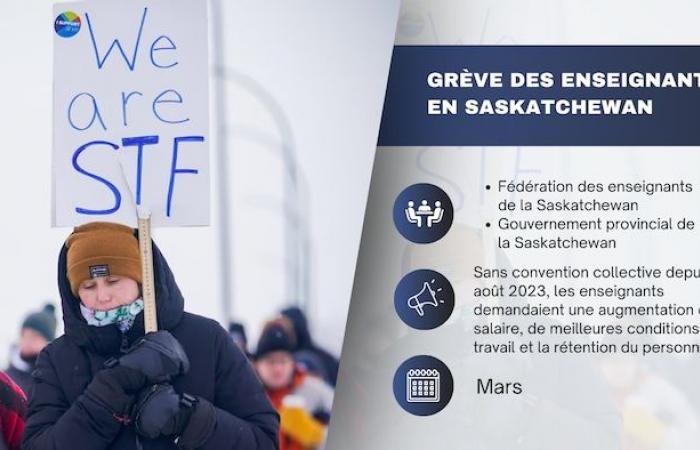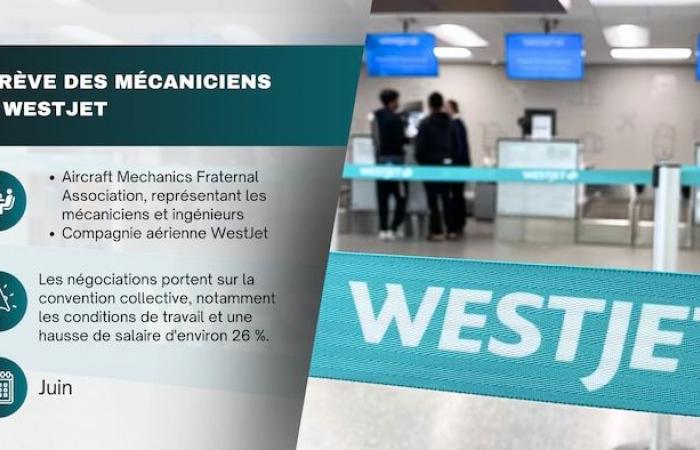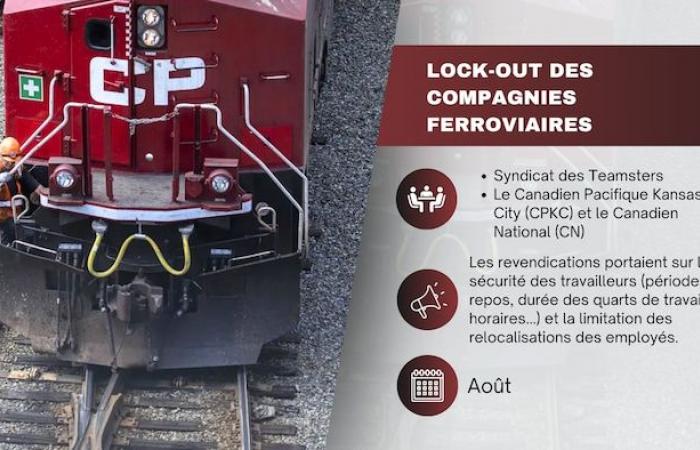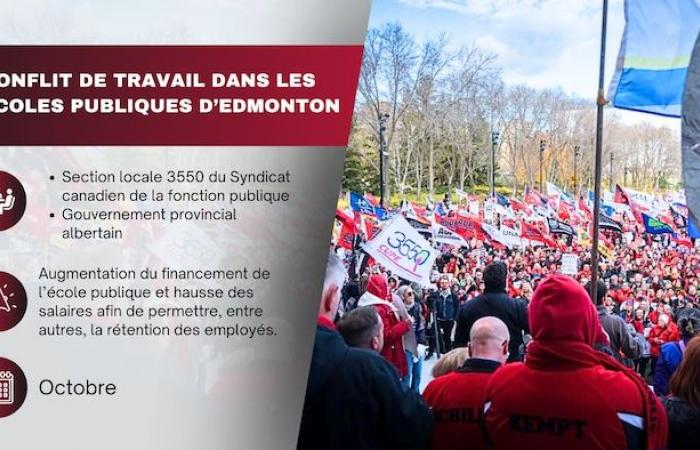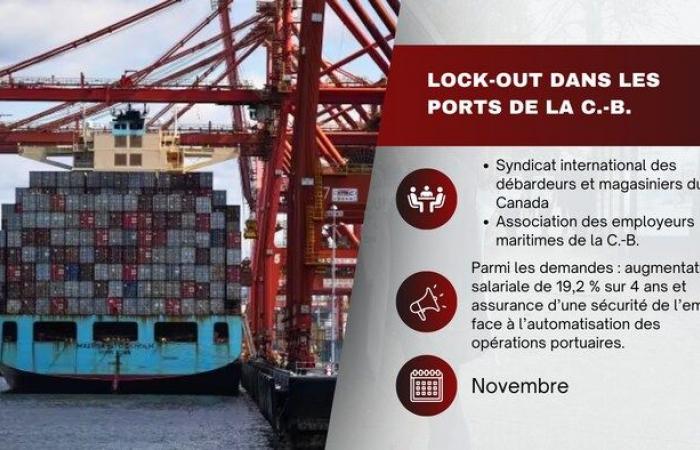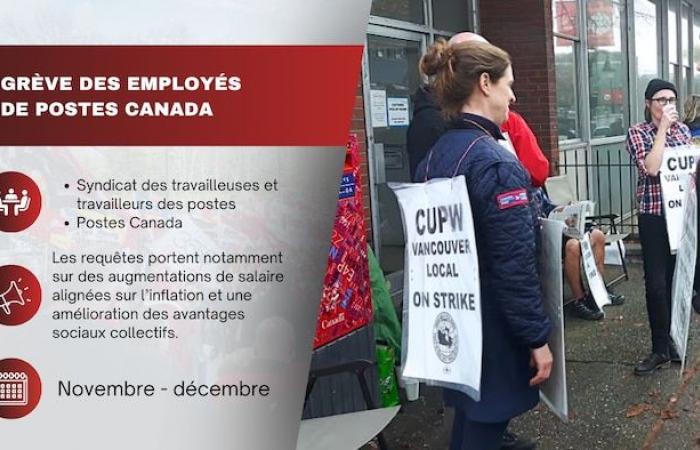There have been numerous labor disputes in the country in the past year, and much has been written about them, which could give the impression that 2024 was a record year for work stoppages.
But this is not the case.
In fact, 2023 was the year with the most work stoppages since the 1980s, according to Statistics Canada data. (New window)
Start of widget. Skip the widget?End of widget. Return to start of widget?
The strikes and lockouts that took place in 2024 were high profile and involved industries that have a significant impact on the average Canadian
explains the professor of human resources and labor relations at Athabasca University Jason Foster.
That’s why we feel like it was a busier year [à cet égard].
We only have to think of the railway workers’ lockout which paralyzed rail transport for several days from one end of the country to the other, or even that at the port of Vancouver, not to mention the strike on the WestJetto note that the labor conflicts of the last year have had major repercussions.
Snowball effect
However, if 2024 was not a record year in terms of conflicts in the workplace, the fact remains that it is part of a movement that has not been observed for decades, underlines Jason Foster.
The years 2023 and 2024 are part of the same wave, and this is the largest strike wave we have seen since the mid-1980s
he said.
Unsurprisingly, the pandemic is one of the reasons explaining the phenomenon, according to Jean-François Tremblay, professor in the Department of Industrial Relations at the University of Quebec in Outaouais.
COVID-19 has indeed led to a sort of perfect storm with the reorganization of the labor market, the inflationary context and the greater valorization of the role of employees who put their health at risk
.
A calculation is made on the part of union organizations and employees to say that the situation is the best in recent decades to try to significantly improve working conditions.
Moreover, there is a snowball effect, and it is completely symptomatic
.
-
Open in full screen mode
A binding arbitration process between the Saskatchewan Teachers’ Federation (STF) and the provincial government began in mid-December, aiming to end the months-long labor dispute.
Photo: The Canadian Press / Heywood Yu
-
Open in full screen mode
130 planes were grounded at 13 airports across the country during the Canada Day long weekend. More than 800 flights had to be canceled, disrupting the plans of some 100,000 travelers.
Photo: - / Albert Couillard
-
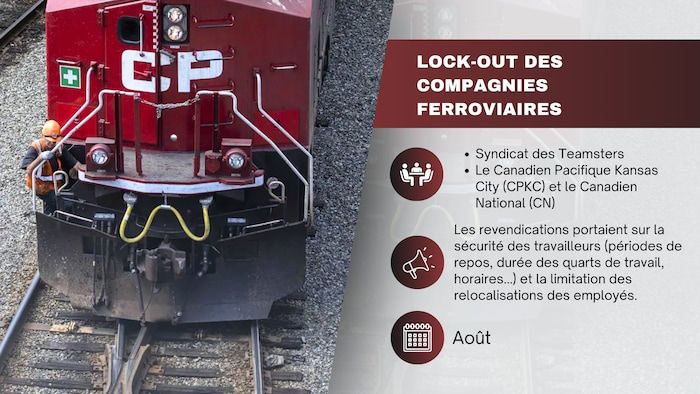
Open in full screen mode
Canadian National (CN) and Canadian Pacific Kansas City (CPKC) have locked out 9,300 of their employees. The two railway companies carry out 75% of the country’s freight transport. The workers’ battle continues in court despite the return to work imposed by Ottawa.
Photo : - / Ben Nelms
-
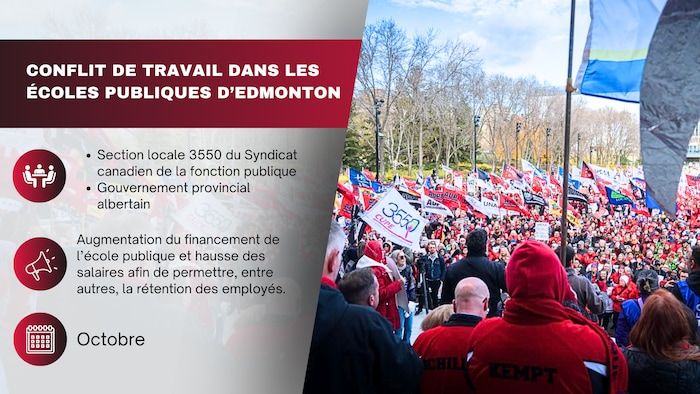
Open in full screen mode
An agreement has still not been reached between local 3550 of the Canadian Union of Public Employees (CUPE) and the Edmonton Public School Board (EPSB). On December 17, the union’s negotiating committee rejected the offer of the mediator mandated by the province to reconcile the two parties.
Photo: - / Manuel Carrillos Avalos
-
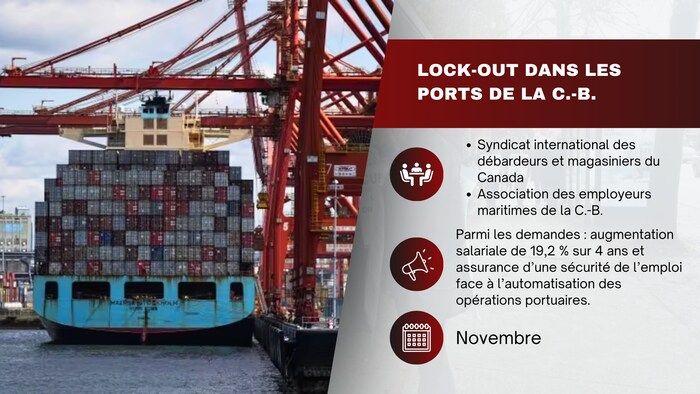
Open in full screen mode
The imposition of arbitration by Ottawa marks the end of the lockout imposed by the Maritime Employers’ Association of British Columbia, which began on November 4.
Photo: The Canadian Press / Darryl Dyck
-
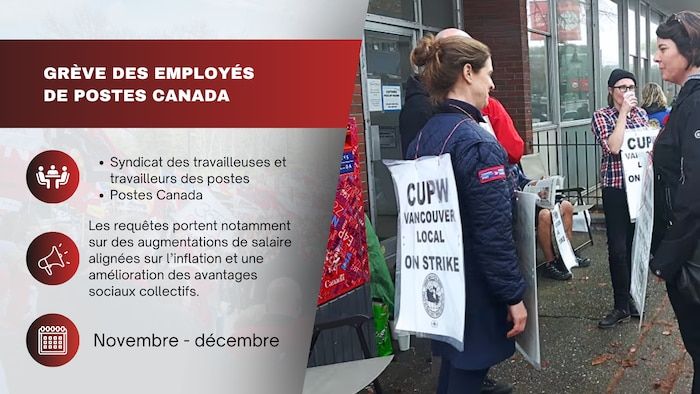
Open in full screen mode
After a month of strike, Canada Post’s 55,000 workers return to work on December 17, but the volume of late deliveries to process is large.
Photo: - / Catherine Rolfsen
End of list of 6 items. Return to top of list?
An agreement has still not been reached between local 3550 of the Canadian Union of Public Employees (CUPE) and the Edmonton Public School Board (EPSB). On December 17, the union’s negotiating committee rejected the offer of the mediator mandated by the province to reconcile the two parties.
Photo: - / Manuel Carrillos Avalos
A binding arbitration process between the Saskatchewan Teachers’ Federation (STF) and the provincial government began in mid-December, aiming to end the months-long labor dispute.
Photo: The Canadian Press / Heywood Yu
Photo album: Workplace conflict sheets in 2024
If others are fighting, if others are going to seek gains, if others are seeing their working conditions improve, why not us?
The particularity of the Prairies
Historically, the Prairie provinces have been more discreet than Ontario and Quebec when it comes to union demands, says Jason Foster, who also directs the Institute Parkland from the University of Alberta.
However, this is about to change, according to him, especially in the first part of 2025. We are going to see some conflict, particularly here in Alberta
.
Around 250,000 public sector workers are currently in negotiations in the province, and a strike is strongly anticipated among Alberta nurses, he recalls.
I think in 2025 there will be more labor disputes in Alberta, Saskatchewan and Manitoba than in the past.

